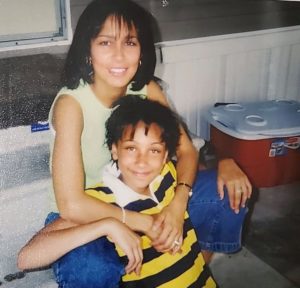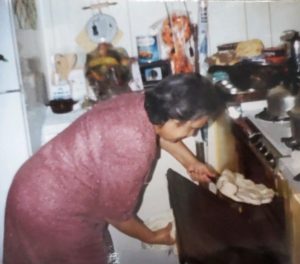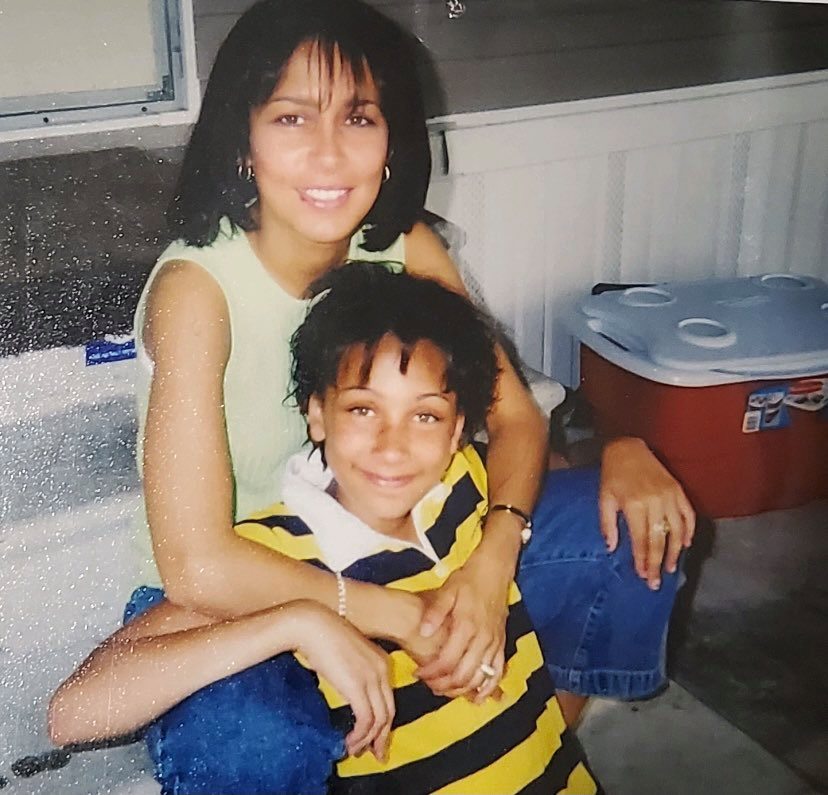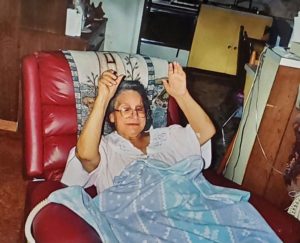 I remember as a young girl, I never thought of myself as being Indian. I remember watching movies about Indians on TV like Pocahontas and Dances with Wolves and feeling totally alienated from whatever kind of Indians those were. Of course, later I would learn that neither story was true, but still, I didn’t feel Indian. There was so much mysticism enshrouded in what I thought being Indian meant. I thought I should be able to dance like they do at powwows, or sing like they do around the drum, or have a perfectly stoic composure with a middle part in my hair that trickled down to two long braids by my side. But I had none of that.
I remember as a young girl, I never thought of myself as being Indian. I remember watching movies about Indians on TV like Pocahontas and Dances with Wolves and feeling totally alienated from whatever kind of Indians those were. Of course, later I would learn that neither story was true, but still, I didn’t feel Indian. There was so much mysticism enshrouded in what I thought being Indian meant. I thought I should be able to dance like they do at powwows, or sing like they do around the drum, or have a perfectly stoic composure with a middle part in my hair that trickled down to two long braids by my side. But I had none of that.
I remember once I had a children’s book that was about Indians. And the little boy in the story lived in the desert in a teepee with his grandfather, and they both had long braids, and they spoke in parables, and I thought now those are Indians. Well, then what was I? I had to be something else entirely.
It would take me a long while to begin to understand my own identity as a person who is both Southern and Indigenous, Lumbee specifically. To recognize that the representations on TV and in the media are of the white man’s Indian – how he thinks we should look, dress, and be. Stoic, silent, sad. Well, I was none of those. And neither was my family.
My traditions did not involve a drum or smoke signals or teepees. My traditions were Young and the Restless every day after school with my grandma, and our ceremonies were hanging out clothes on the line with clothes pins, and then shaking them once they were dry so we didn’t bring in any spiders. Our prayers were quick musings over flourbread my grandma home-made, which she poured molasses over and ate with fervency, or the longer ones when she would cry at night by her bed. My rituals was getting my hair rolled every Saturday morning at the beauty shop around the corner with my momma, where they did not talk in parables, but in plain speech about such and such and so and so, and I listened while pretending not to, all up in grown folks business. Our songs were Amazing Grace and I Shall Not Be Moved, which my grandma sung all throughout the house while rolling out pastry and frying up cornbread.
 Our silence was only when it was thundering and lightning, while grandma told us to hush while God did his work. And hush we did. And turned off the TV too lest it be struck by God’s lightning. Our food was two Jesse Jones hot dogs and a Pepsi, Cheerwine, a drank and a nab, a Co-Cola with peanuts in it, collards, cabbage, fat back, and all the fixins. Our river was not like the clear and blue ones I saw on TV, but is filled with a dark water that is our own. Our dances were not like what I saw at powwows, but was momma shouting at the altar, or Sis. Rosie shouting her bobby pins out, or Bro. Tony running, no, leaping down the aisle.
Our silence was only when it was thundering and lightning, while grandma told us to hush while God did his work. And hush we did. And turned off the TV too lest it be struck by God’s lightning. Our food was two Jesse Jones hot dogs and a Pepsi, Cheerwine, a drank and a nab, a Co-Cola with peanuts in it, collards, cabbage, fat back, and all the fixins. Our river was not like the clear and blue ones I saw on TV, but is filled with a dark water that is our own. Our dances were not like what I saw at powwows, but was momma shouting at the altar, or Sis. Rosie shouting her bobby pins out, or Bro. Tony running, no, leaping down the aisle.
Perhaps we are strange Indians. We are not the ones you see on TV. And certainly not like the ones in the history books. And we do not apologize for it. We belong to each other in this unique, peculiar, Southern way, a way that is ours and ours alone. A way that will not be broadcast on your television. We are neither meek nor are we mild, but we are as much a part of what America is as apple pie and racism. And you might look at us funny, or think us odd, and to that, we might say, honey, bless your little heart. And bless it, we shall.
 Brittany Danielle Hunt is a member of the Lumbee Tribe of North Carolina. She is a graduate of Duke University, UNC, and a PhD Candidate at UNC Charlotte.
Brittany Danielle Hunt is a member of the Lumbee Tribe of North Carolina. She is a graduate of Duke University, UNC, and a PhD Candidate at UNC Charlotte.


Thank you for your stories and how they inspire the Lum’s who read them. God bless!
Wow! I absolutely love your story here and it’s all very true. Everything you mentioned, I consider, “The good ole days”. I will cherish those memories until I can no longer remember or God decides to take me home. Thank you for sharing.
I no longer live back home In Robeson County , all the things you have written are so true ! I miss my cheerwine ! I still watch Y&R! ❤️
I say Identity is the number issue Indians are dealing with. It is not the numerous social ills everyone brings out – you know; poverty, justice, addiction, health, etc. It is dealing with the devastating affects of colonial attacks on our identity. The attack was prolonged and relentless – they attacked our way of life, our beliefs and lively-hood. Of course it has left a mark. We have people who question their identity all the time. So thank you for your thoughts.